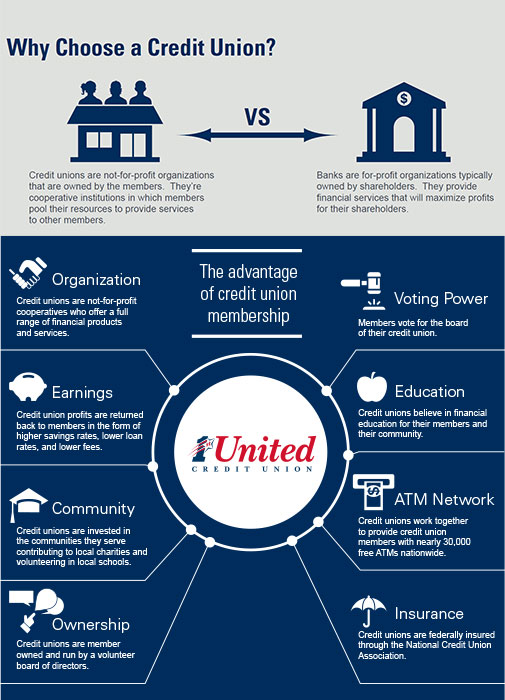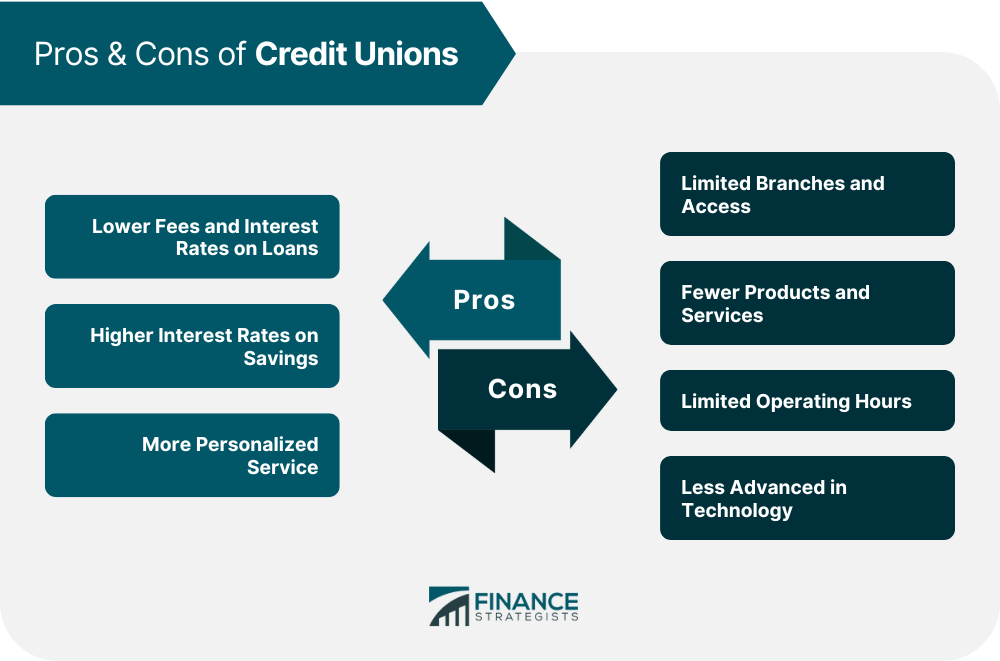Wyoming Credit Union: Trusted Financial Solutions for Every Requirement
Wyoming Credit Union: Trusted Financial Solutions for Every Requirement
Blog Article
The Ultimate Overview to Understanding Lending Institution

Lending institution stand as distinct economic entities, rooted in principles of mutual assistance and member-driven operations. Nevertheless, beyond their fundamental values, comprehending the intricate operations of credit history unions involves a much deeper expedition. Unraveling the intricacies of subscription eligibility, the evolution of solutions used, and the distinct advantages they bring calls for a comprehensive assessment. As we browse via the ins and outs of credit report unions, an informative journey awaits to clarify these member-focused establishments and just how they differ from conventional banks.
What Are Cooperative Credit Union?
Lending institution are member-owned financial establishments that use a series of financial solutions to their members. Unlike typical banks, cooperative credit union run as not-for-profit organizations, indicating their primary emphasis is on offering their members instead of making the most of earnings. Participants of a lending institution typically share a common bond, such as helping the exact same company, coming from the very same area, or becoming part of the same organization.
Among the vital benefits of cooperative credit union is that they often use higher passion rates on interest-bearing accounts and reduced interest rates on financings compared to banks. Credit Unions in Wyoming. This is since credit rating unions are structured to benefit their members straight, enabling them to hand down their incomes in the type of much better prices and fewer fees. Furthermore, cooperative credit union are known for their customized client service, as they prioritize developing connections with their members to understand their distinct financial needs and objectives
Background and Advancement of Cooperative Credit Union
The origins of member-owned economic cooperatives, understood today as credit score unions, trace back to a time when areas sought alternatives to traditional financial organizations. The idea of cooperative credit union come from the 19th century in Europe, with Friedrich Wilhelm Raiffeisen typically credited as the pioneer of the participating banking movement. Raiffeisen started the very first acknowledged credit score union in Germany in the mid-1800s, stressing neighborhood support and self-help concepts.
The development of cooperative credit union continued in North America, where Alphonse Desjardins developed the very first lending institution in Canada in 1900. Quickly after, in 1909, the very first U.S. cooperative credit union was developed in New Hampshire by a group of Franco-American immigrants. These early cooperative credit union operated the essential principles of shared support, democratic control, and participant ownership.
Gradually, lending institution have actually grown in popularity worldwide as a result of their not-for-profit structure, emphasis on offering members, and using competitive financial services and products. Today, cooperative credit union play an essential function in the economic market, providing community-oriented and available banking alternatives for businesses and people alike.

Subscription and Qualification Criteria
Subscription at a credit report union is commonly limited to people satisfying particular eligibility standards based on the establishment's beginning principles and regulatory needs. Some credit unions may just serve individuals that work or live in a certain location, while others may be customized to staff members of a specific company or participants of a particular organization.
In addition, cooperative credit union are structured as not-for-profit companies, indicating that their main goal is to serve their participants instead than create profits for investors. This emphasis on member solution commonly translates right into more personalized interest, lower charges, and competitive passion rates on loans and cost savings accounts. By meeting the qualification criteria and ending up being a participant of a credit scores union, people can access a range of monetary products and services customized to their specific requirements.
Providers and Products Used
One of the vital elements that establishes credit history unions apart is the varied series of economic product and services they use to their members. Cooperative credit union generally supply typical financial services such as cost savings and examining accounts, lendings, and bank card. Members can also gain from financial investment solutions, consisting of retired life accounts and financial planning assistance. Numerous credit score unions supply affordable passion prices on financial savings accounts and lendings, as well as lower fees compared to traditional banks.
Moreover, lending institution frequently provide hassle-free online and mobile financial options for participants to quickly manage their funds. They may use benefits such as common branching, enabling participants to access their accounts at other lending institution across the nation. Some cooperative credit union likewise give insurance policy products like life, auto, and home insurance to assist participants protect their properties and loved ones.

Advantages of Financial With Credit Report Unions
When thinking about financial institutions, discovering the benefits of financial with credit score unions discloses one-of-a-kind benefits for participants looking for individualized service and competitive prices. Unlike huge banks, credit report unions are member-owned and prioritize building strong partnerships with their members. Generally, financial with a credit report union over at this website can offer an extra tailored, investigate this site affordable, and member-centric financial experience.
Final Thought
To conclude, credit report unions stick out as member-owned financial organizations that prioritize offering their participants over taking full advantage of profits. With origins going back to 19th century Europe, debt unions comply with concepts of mutual help and member ownership. They use a series of monetary product and services, consisting of traditional banking services, financial investment alternatives, and affordable interest rates. Membership eligibility requirements are specific and reflect a community-oriented method, supplying tailored consumer solution and a member-centric financial experience.
Credit scores unions are member-owned financial institutions that offer an array of financial services to their members. The principle of credit rating unions stem in the 19th century in Europe, with Friedrich Wilhelm Raiffeisen often attributed as the leader of the cooperative financial activity.The development of credit score unions continued in North America, where Alphonse Desjardins established the initial debt union discover here in Canada in 1900. Debt unions commonly supply conventional financial solutions such as savings and examining accounts, finances, and credit report cards.When considering economic organizations, discovering the advantages of financial with credit report unions reveals special benefits for participants seeking individualized service and competitive prices.
Report this page